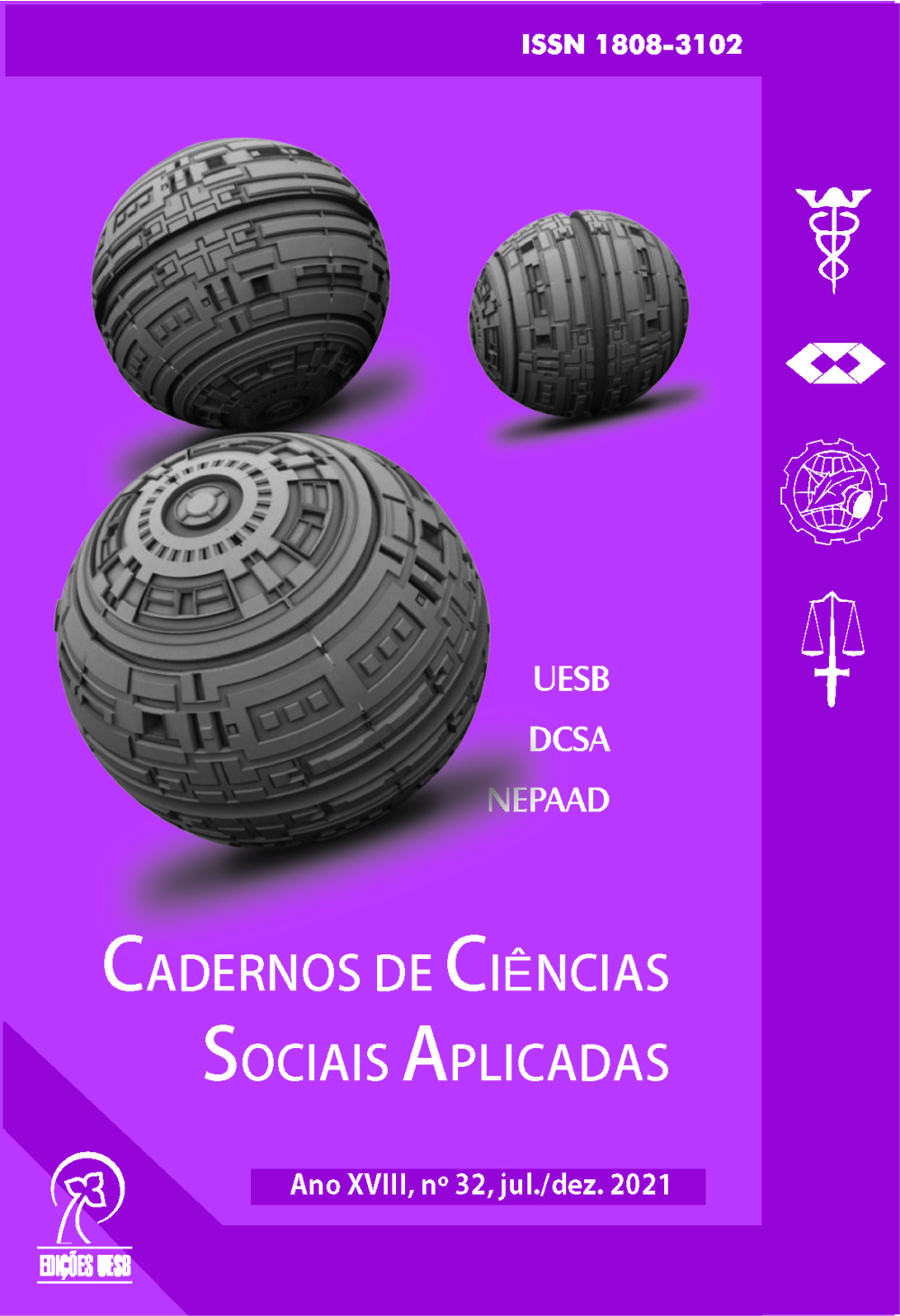Social dilemms and characterization of individuals: a study applied to empathic and impatient behavior
Keywords:
Behavioral Economics; Quiz; Biological Characteristics.Abstract
Behavioral Economics (BE), when studying pro-social behavior, uses a set of tools to analyze the economic agent, as different from individual maximization, postulated in traditional economics as a source of balance, the best result, in contexts known as dilemmas social, is the result of collective maximization. Empathic and impatient behaviors stand out as latent to the pro-social, directly impacting social dilemmas. Thus, we seek to understand how socioeconomic, biological and motor characteristics can affect such behaviors and, therefore, influence the handling of dilemmas. To reach the audience of this research, the online application form system was used, with questions regarding the characteristics, as well as the games proposed to study impatience and empathy. A relationship was found between gender, age, laterality, children, belief and empathetic and impatient behaviors, as well as a negative correlation between the behaviors studied. It is noteworthy that the higher the cost involved (which may add affective cost or opportunity cost) in the situation, the lower the empathy.
Downloads
References
ANGNER, E.; LOEWENSTEIN, G.. Behavioral Economics. In: MÄKI, Uskali (ed.). Handbook of the philosophy of science: philosophy of economic. Amsterdam: Elsevier, 2012. p. 641-690. Disponível em: https://papers.ssrn.com/sol3/papers.cfm?abstract_id=957148. Acesso em: 01 set. 2020.
DA SILVA, S.; BALDO, D.; MATSUSHITA, Raul. Biological correlates of the Allais paradox. Applied Economics, [S.L.], v. 45, n. 5, p. 555-568, fev. 2013. Informa UK Limited. http://dx.doi.org/10.1080/00036846.2011.607133.
DAWES, R M. Social Dilemmas. Annual Review Of Psychology, [S.L.], v. 31, n. 1, p. 169-193, jan. 1980. Annual Reviews. http://dx.doi.org/10.1146/annurev.ps.31.020180.001125.
DE AGUIAR, C. S.. Análise da associação entre empatia e personalidade em estudantes de medicina da Universidade Federal de Pernambuco. 2015. 75 f. Dissertação (Mestrado) - Curso de Neuropsiquiatria, Programa de Pós-Graduação em Neuropsiquiatria e Ciências do Comportamento, UFPE, Recife, 2015. Disponível em: https://repositorio.ufpe.br/handle/123456789/15255. Acesso em: 01 set. 2020
FIGUEIRA, T. D. de F. Comportamentos desajustados e Comportamentos pró-sociais nas crianças: relação com empatia, impulsividade e propensão para o risco. 2017. 143 f. Dissertação (Mestrado) - Curso de Criminologia, Faculdade de Direito, Universidade do Porto, Porto, 2017. Disponível em: https://repositorio-aberto.up.pt/bitstream/10216/108016/2/222745.pdf . Acesso em: 01 set. 2020.
HARDIN, G.. The Tragedy of the Commons. American Association For The Advancement Of Science, [S.L.], v. 162, n. 3859, p. 1243-1248, dez. 1968. https://doi.org/10.1126/science.162.3859.1243
MAZZOLENI, M.. Dilemas Sociais: orientação de valor social, normas e cooperação. 2018. 111 f. Dissertação (Mestrado) - Curso de Psicologia, Programa de Pós-Graduação em Psicologia Social, do Trabalho e das Organizações, UNB, Brasília, 2018. Disponível em: https://repositorio.unb.br/handle/10482/34900. Acesso em: 10 dez. 2020.
PILATI, R.. Cenários experimentais: efeito sobre a emoção e o comportamento pró-social. Estudos de Psicologia, Natal, v. 16, n. 2, p. 163-170, ago. 2011. FapUNIFESP (Scielo). http://dx.doi.org/10.1590/s1413-294x2011000200007.
SUTTER, M.; KOCHER, M. G.; GLÄTZLE-RÜTZLER, D.; TRAUTMANN, S. T.. Impatience and Uncertainty: experimental decisions predict adolescents' field behavior. American Economic Review, [S.L.], v. 103, n. 1, p. 510-531, 1 fev. 2013. American Economic Association. http://dx.doi.org/10.1257/aer.103.1.510.
VAN BOVEN, L.; LOEWENSTEIN, G.; DUNNING, D.; NORDGREN, L. F.. Changing Places. Advances in Experimental Social Psychology, [S.L.], p. 117-171, 2013. Elsevier. http://dx.doi.org/10.1016/b978-0-12-407188-9.00003-x.
VAN LANGE, P. A. M.; BALLIET, D.; PARKS, C. D.; VAN VUGT, M.. Social Dilemmas: the psychology of human cooperation. New York: Oxford University Press, 2014. 209 p.
VIEIRA, H.C.; CASTRO, A.E.; SCHUCH JUNIOR, V.F. O uso de questionários via email em pesquisas acadêmicas sob a ótica dos respondentes. In: XIII SEMEAD – Seminários de Administração, 2010. Anais. São Paulo: FEA-USP, 2010. p. 1-13. Disponível em: http://sistema.semead.com.br/13semead/resultado/trabalhosPDF/612.pdf. Acesso em: 04 dez 2020
VON NEUMANN, John; MORGENSTERN, Oskar. Theory of Games and Economic Behavior. Nova Jersey: Princeton University Press , 1944. 625 p.
Downloads
Published
How to Cite
Issue
Section
License
Copyright (c) 2021 Cadernos de Ciências Sociais Aplicadas

This work is licensed under a Creative Commons Attribution-NonCommercial 4.0 International License.






